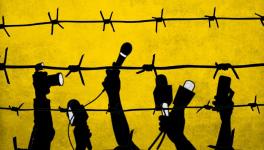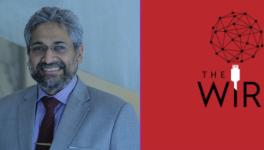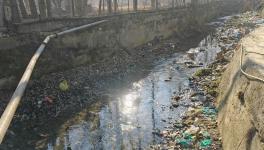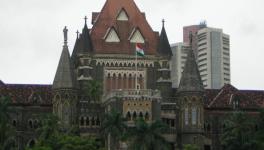Rights Groups call for Journalist Fahad Shah's Release, end of Media Crackdown in Kashmir
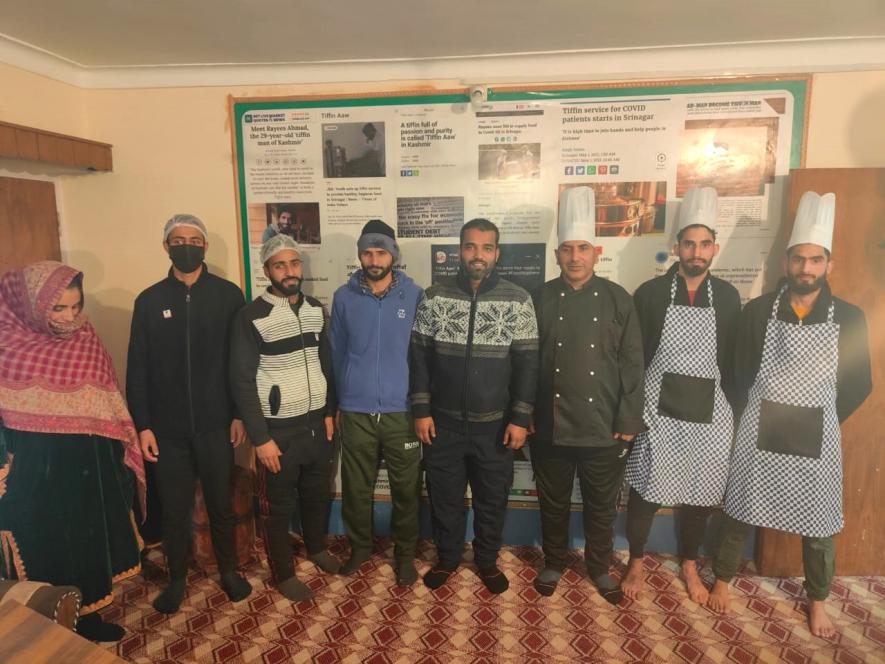
Srinagar: International rights bodies and media watchdogs have warned that the authorities in Jammu and Kashmir are "misusing" several controversial laws to silence "peaceful dissent" amid an intense crackdown against media in the region.
The fresh concern amongst rights groups comes after Jammu and Kashmir Police arrested journalist Fahad Shah. The 33-year-old Kashmiri journalist was summoned to a police station in South Kashmir's Pulwama earlier last week, after which the police arrested him.
Shah, the editor of a Srinagar based digital news publication The Kashmir Walla, was accused of "glorifying" militancy and "inciting" people to create a law and order situation.
Shah had two cases against him at Safakadal police station in Srinagar and Imamsahib police station in Shopian. According to the police, he was arrested in a fresh case lodged at the Pulwama police station.
"It was also learnt that these Facebook users are uploading such posts which tantamount to glorifying the terrorist activities and causing dent to the image of law enforcing agencies besides causing ill-will & disaffection against the country," a police statement read.
The J&K police said that the investigation into the matter was in progress but skipped referring to Shah as a journalist. Following his arrest on February 4, the court remanded him to police custody for ten days.
Shah studied at London's School of Oriental and African Studies (SOAS) in 2013-14 and has since been published widely in international media, including TIME, Atlantic, The Guardian, Christian Science Monitor, and Foreign Affairs.
Shah's arrest is seen by many in Kashmir as stepping up of crackdown on media in the troubled region where police authorities have reportedly summoned, booked, harassed, and humiliated scores of journalists since the abrogation of Article 370 and Article 35A of the Indian Constitution on August 5, 2019.
Rights bodies like the United Nations, Human Rights Watch (HRW), and Amnesty have issued several statements condemning the widespread assault on local journalists. The crackdown, however, has been on the wider civil society in the region that includes activists, politicians, and others.
Concerns have been rising over freedom of expression and press freedom as Shah is the second journalist arrested this year. Earlier in January, a budding journalist Sajad Gul, who worked under Shah, was arrested and booked under the controversial Public Safety Act (PSA). Both these arrests have triggered uncertainty among journalists in Kashmir.
Many fear for their safety as charges levelled against journalists so far include serious sections under the Unlawful Activities (Prevention) Act, under which a person can be jailed for up to seven years if convicted.
"Fahad Shah's arrest is only the latest attempt by the Indian government to frighten off the media for doing its job and reporting on abuses," the South Asia director at HRW, Meenakshi Ganguly, said in a statement on Tuesday.
Ganguly called for the immediate release of Shah and other journalists, activists, and critics who have been jailed on what the HRW referred to as "politically motivated charges". She added that the harassment under the "draconian laws" should be halted.
"When the government uses authoritarian tactics to silence journalists and activists, it only shows it has abuses to hide," Ganguly said.
Despite condemnations, the attacks continue to grow. India is ranked 142nd out of 180 countries in the 2021 World Press Freedom Index published by the Reporters Without Borders (RSF). According to the Paris-based media watchdog, there have been increased violations of the right to information by the local authorities since the start of 2022.
"A journalist cannot be thrown in prison and face spending the rest of his life there simply for doing his job and covering a news story," RSF spokesperson Pauline Adès Mével said while calling for Shah's release.
The Editor's Guild of India (EGI), in a statement issued on February 6, said the space for media freedom was progressively being eroded in Kashmir.
"The Guild urges the state administration to respect democratic values and stop the harassment of journalists in the name of national security," the statement read.
In September last year, the J&K Police and paramilitary forces raided the residences of four senior journalists in Srinagar. They were later summoned to the police station and questioned for hours.
The Committee to Protect Journalists (CPJ), which promotes press freedom worldwide, condemned the raids. However, the raid took place only weeks after the UN Human Rights Council-appointed Special Rapporteur wrote to take measures to stop “arbitrary detention and intimidation of journalists covering the situation in Jammu and Kashmir.” The UN body mentioned Kashmiri journalists Fahad Shah, Auqib Javeed, Sajad Gul, and Qazi Shibli who were allegedly harassed by J&K authorities multiple times.
Meanwhile, a strong online campaign against the trailer of a documentary film on Kashmir has led to the delay in its release. Its trailer was pulled down as part of the decision regarding growing concerns amongst the makers of the film.
"In response to the security concerns of journalists and contributors involved in our documentary on Kashmir, we have taken the difficult decision to remove the trailer of this documentary and postpone its release," a statement from the filmmakers at RedFish media said.
"We understood that Kashmir is a provocative topic, but were astounded to see the backlash targeted not at our work, but at a bemused Russia Embassy in New Delhi...," the statement added.
The twitter-handle of the RedFish indicated that it was a Russian state-affiliated media that led to the ire of online critics directed towards the Russian authorities. The Russian embassy in Delhi later came out with a clarification that the Twitter handle is misleading and that the authorities had nothing to do with the editorial decision of the filmmakers.
Get the latest reports & analysis with people's perspective on Protests, movements & deep analytical videos, discussions of the current affairs in your Telegram app. Subscribe to NewsClick's Telegram channel & get Real-Time updates on stories, as they get published on our website.










